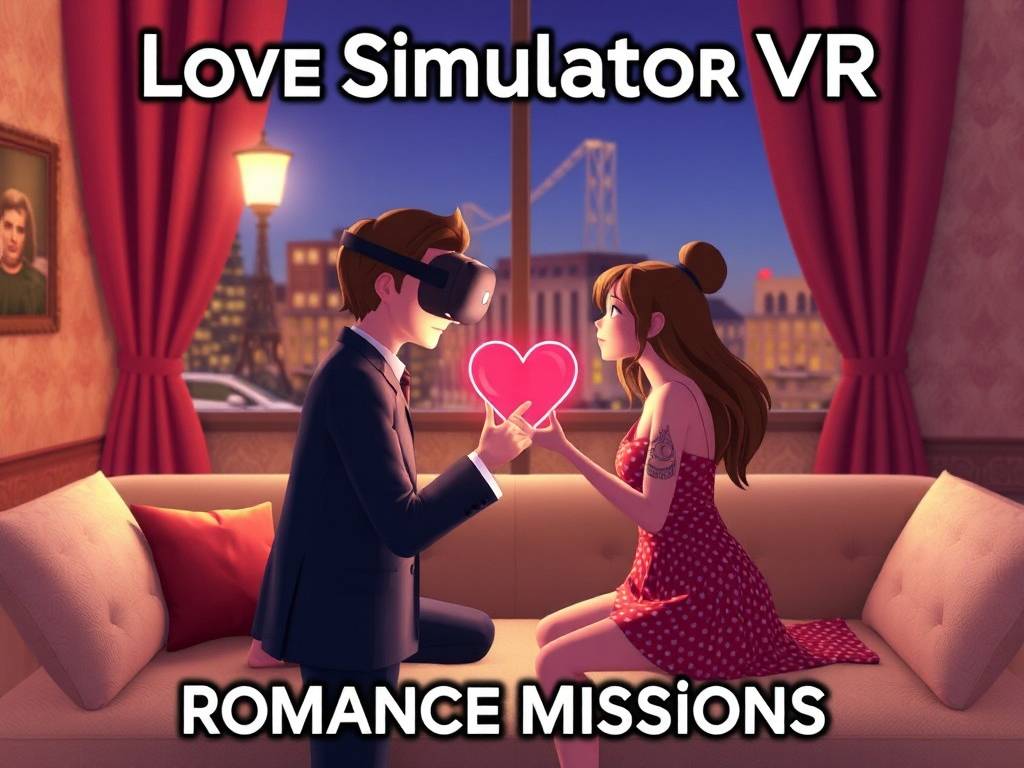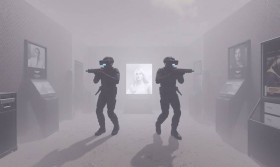Love Simulator VR: Romance Missions DLC - A Digital Heart's True Test
The virtual reality landscape has long promised worlds of endless possibility, but rarely has it dared to navigate the complex, often messy, terrain of the human heart. The original Love Simulator VR offered a novel premise: a sandbox for social interaction and lighthearted dating, where players could hone their conversational skills in a consequence-free environment. It was charming, if somewhat superficial. With the release of the Romance Missions DLC, the developers at Neon Heart Studios have done more than just add content; they have fundamentally redefined their game's purpose. This expansion transforms a playful simulator into a profound and surprisingly authentic exploration of emotional intelligence, vulnerability, and the true meaning of connection.

Beyond the Swipe: The Philosophy of "Romance Missions"
The DLC’s core innovation is its mission-based structure. Gone are the days of aimlessly chatting up characters at a virtual bar. Instead, players are presented with a series of structured narratives, each focusing on a specific facet of a burgeoning relationship. These are not mere fetch quests or simple dialogue trees. A mission might be titled "The Art of Active Listening," where the player's goal is not to impress their date with witty banter, but to genuinely understand a character's anxiety about their career. Success is measured not by a point score, but by the subtle shifts in body language, the tone of voice, and the depth of the follow-up questions you choose.
Another mission, "Navigating Conflict," deliberately places the player in a scenario where a disagreement arises. The objective isn't to "win" the argument but to navigate it with empathy and respect. The VR medium is crucial here. You can't simply click a pre-written "Apologize" option. You must use your own voice, maintain eye contact (tracked by the headset), and use gentle, open-handed gestures to de-escalate the situation. The game's advanced AI responds to these non-verbal cues in real-time, creating a dynamic that feels less like a game and more like an interactive drama.

A Cast of Complex Characters
The DLC introduces three new central characters, each with a richly developed backstory and emotional arc that unfolds over multiple missions.
-
Maya, The Ambitious Architect: Maya is driven, brilliant, and fiercely independent. Early missions involve supporting her through a high-stakes project. The challenge here isn't winning her affection with grand gestures, but learning to be a supportive presence without being overbearing. She values intellectual sparring and someone who respects her boundaries. A mission might involve helping her brainstorm, where the "correct" choice is to offer constructive criticism rather than empty praise.
-
Leo, The Compassionate Musician: Leo is empathetic and creative, but struggles with self-doubt after a professional setback. His story arc is about rebuilding confidence. Missions with Leo are quieter, often involving simple activities like walking through a procedurally generated park at sunset or listening to him play a new song. The game brilliantly uses the VR headset's audio immersion here; you have to actually listen to the music, and your feedback—specific, vague, or disinterested—directly impacts his emotional state and the relationship's trajectory.
-
Chloe, The Guarded Librarian: Chloe presents the most significant challenge. Witty and perceptive, she has built high walls around herself due to past hurt. The early missions with her are fraught with potential missteps. A poorly timed joke or a too-personal question can cause her to shut down completely. Progress is slow and hard-won, focusing on building trust through consistency and demonstrating reliability over time. A key mission, "The Vulnerability Threshold," is a masterclass in narrative design, where the player must choose to share a personal insecurity of their own to encourage her to open up.
The Technology of Intimacy
Love Simulator VR was always a technical showcase, but the Romance Missions DLC leverages VR technology in service of emotional storytelling. The haptic feedback is used with remarkable subtlety. A gentle brush of a character's hand transmits a soft vibration, a shared glance held a moment too long is punctuated by a quiet heartbeat thrum through the controllers. The eye-tracking technology is the star of the show. The characters now notice where you are looking. Staring at your feet during a serious conversation will be interpreted as disinterest or discomfort. Maintaining genuine eye contact, even when it feels challenging, builds a palpable sense of intimacy.
The environments are no longer just static backdrops. They are active participants in the emotional narrative. A mission titled "The Unspoken Tension" takes place during a silent walk through a rainy cityscape. The sound of the rain, the glow of the streetlights, and the physical distance you choose to keep from your partner all contribute to the mood. The game doesn't tell you what to feel; it creates a space where emotion can emerge organically from the interaction between player, character, and world.
The Unexpected Verdict: More Than a Game
The greatest achievement of the Romance Missions DLC is that it transcends its genre. While it remains an entertaining video game, it inadvertently becomes a powerful tool for emotional literacy. Players learn, through trial and error, the value of patience, the importance of validating a partner's feelings, and the courage required to be vulnerable. The DLC argues that romance isn't about memorizing the perfect lines or giving the most expensive gift; it's about the daily practice of empathy, attention, and respect.
In an age of digital isolation and abbreviated communication, Love Simulator VR: Romance Missions offers a poignant counterpoint. It uses the most advanced digital technology available to teach the most ancient of human skills: how to truly connect with another soul. It is a brave, thoughtful, and often beautiful expansion that doesn't just simulate love—it inspires a deeper appreciation for its real-world counterpart. This isn't just a must-play DLC for fans of the base game; it is a significant milestone for interactive storytelling as a whole.


















